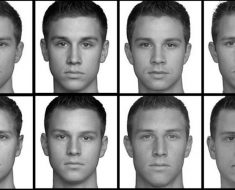Dr Zoe says walking can reduce risk of dementia
We use your sign-up to provide content in ways you’ve consented to and to improve our understanding of you. This may include adverts from us and 3rd parties based on our understanding. You can unsubscribe at any time. More info
Dementia describes a cluster of symptoms associated with progressive brain decline. There is currently no cure for the condition but research is actively investigating the early markers of brain decline. This objective is to understand the mechanisms that may give rise to dementia in the hope of finding ways to thwart it.
A study published last year in Diabetes Research and Clinical Practice concluded “olfactory dysfunction” predicts the development of dementia in older patients with type 2 diabetes.
The finding has profound implications because millions of Britons live with type 2 diabetes in the UK and it’s more common among older individuals than younger.
Olfactory dysfunction has been previously associated with the transition from normal cognition to dementia in persons without type 2 diabetes.
This study aimed to investigate whether olfactory dysfunction could be an early marker of future dementia in older patients with type 2 diabetes.

Olfactory dysfunction is defined as the reduced or distorted ability to smell during sniffing or eating.
The study included 151 older Japanese outpatients with type 2 diabetes who did not have a diagnosis of probable dementia at baseline.
Cognitive function was monitored in the cohort over the course of five years.
What did the researchers learn?
Over three years, approximately nine percent of study participants developed probable dementia.
DON’T MISS
High blood pressure: The smelly symptom to spot [TIPS]
High cholesterol: Pain in three areas is a sign [INSIGHT]
Cancer: Herbal supplement found to be cancerous [ADVICE]
Lower olfactory test score was “significantly” associated with the development of probable dementia, the researchers wrote.
They also found a change in olfactory test score was associated with change in cognitive function test score.
“Olfactory dysfunction precedes the development of probable dementia in older patients with type 2 diabetes,” they concluded.
General warning signs
Different types of dementia can affect people differently, and everyone will experience symptoms in their own way.

However, there are some common early symptoms that may appear some time before a diagnosis of dementia.
These include:
- Memory loss
- Difficulty concentrating
- Finding it hard to carry out familiar daily tasks, such as getting Confused over the correct change when shopping
- Struggling to follow a conversation or find the right word
- Being confused about time and place
- Mood changes.
According to the NHS, these symptoms are often mild and may get worse only very gradually.
“It’s often termed ‘mild cognitive impairment’ (MCI) as the symptoms are not severe enough to be diagnosed as dementia.”

How to respond
Dementia is not a natural part of the ageing process.
“This is why it’s important to talk to a GP sooner rather than later if you’re worried about memory problems or other symptoms,” urges the NHS.
Getting a diagnosis gives you and your family the best chance to prepare for the future.
With treatment and support from healthcare professionals, family, and friends, many people are able to lead active, fulfilling lives with dementia.
Source: Read Full Article





